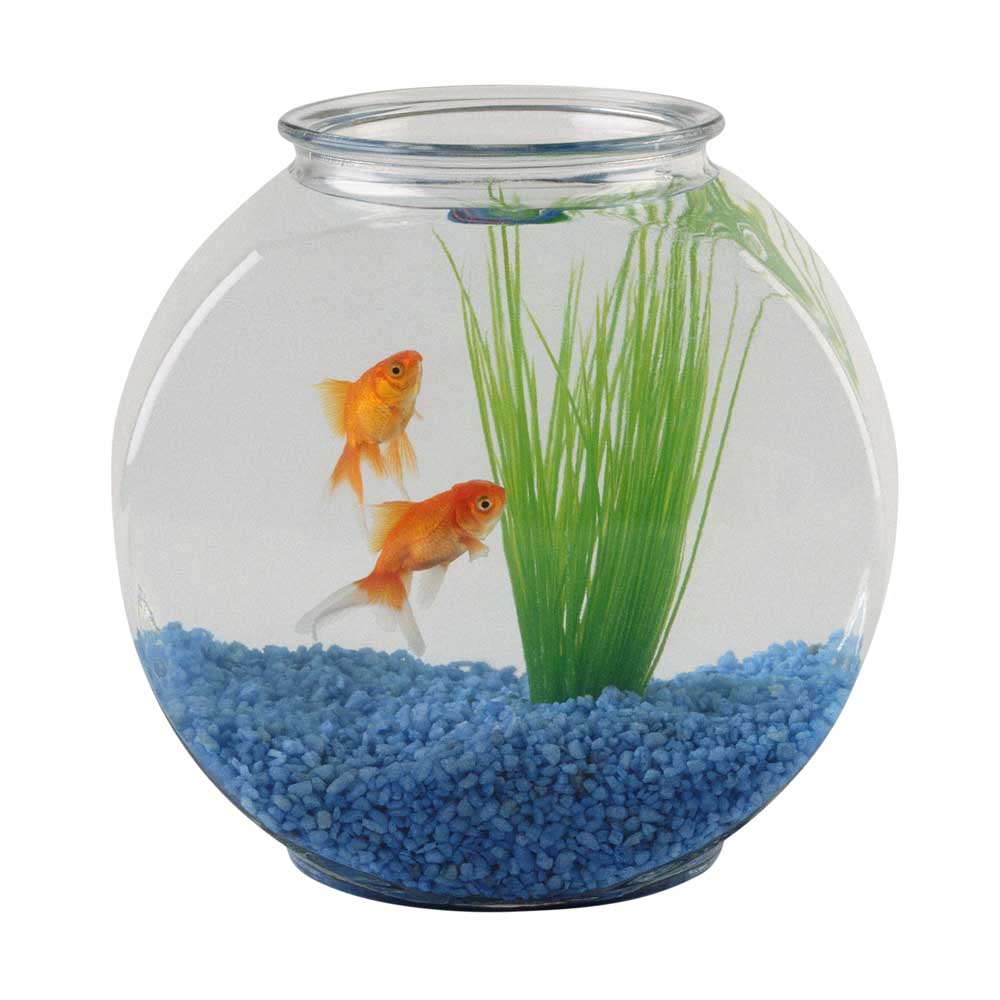Pick a family pet by species, energy level
Published 12:00 am Friday, January 3, 2014

- Fish can make great first pets for families with interested young children. Thinkstock
Owning pets can be beneficial for children in all sorts of ways. There’s physical affection, for starters, not to mention that pets can teach children responsibility as well as help them learn basic facts of life — sickness, death, reproduction, etc.
There are also studies showing that children who grow up with pets are less likely to develop allergies or asthma. Pets can also be confidants and companions for youngsters.
But pets also come with complications. And not all pets are good fits for all families. A gerbil might make a great pet for one family, while a fish or dog would be ideal for another. Owning a pet can also be expensive. All pets require species-specific food and may also need treats as well as fruits or vegetables.
To decipher the ins and outs of various pets, we got help from the Humane Society of the United States, the American Society for the Prevention of Cruelty to Animals and Lynne Ouchida, community outreach manager for the Humane Society of Central Oregon. Here’s a closer look at many common pets, to try to help parents and children figure out just which pet, if any, would be a good fit for their home.
Cats
Cost/supplies: Litter box, litter, food dish, water bowl, scratching post, brush.
Care: Cats require daily food, water and litter box changes.
Lifespan: Indoor cats can live up to 20 years.
To consider: Cats vary widely in temperament. While some enjoy snuggling and contact with children, many cats do not. Cats can be very anti-social or pick favorites. The best way to know what kind of cat you are getting is to adopt an older cat.
Bottom line: Cats and children can be a tricky mix, but the right cat can make an excellent pet for older children.
Dogs
Cost/supplies: Food dish, water bowl, toys, brush, collar, leash, dog bed, crate.
Care: Dogs require daily exercise, plus daily food, water and bathroom breaks. Many dogs also need regular grooming and occasional baths.
Lifespan: 8-16 years.
To consider: Dogs can be wonderful companion animals. Some children tell their dogs secrets or read aloud to them. But some dogs are not kid-friendly.
Bottom line: Small dogs and small children are often not a good match. Look for a dog with a child-friendly temperament.
Hamsters
Costs/supplies: Wire cage, bedding, exercise wheel, food dish, water dish, toys.
Care: Daily handling or interaction is recommended, plus weekly cage cleaning. (In general hamsters play well independently.)
Lifespan: About 3 years.
To consider: Hamsters are nocturnal, so they will be making noise and playing at night. If woken during the day, they can bite. Gentle touch is required. Small children, who lack fine motor control, are likely to drop, squeeze or startle hamsters. Beware, too, of hamsters spreading certain diseases to small children, such as salmonella.
Bottom line: Not good for families with children.
Guinea pigs
Costs/supplies: Cage with a solid bottom (they need 4 square feet of cage per animal), bedding, food dish, toys, covered sleeping box, comb and brush, water bottle.
Care: Guinea pigs enjoy playing outside of their cages, but they must be closely supervised. Soiled bedding and droppings should be removed daily; cage should be cleaned weekly. The animals must be brushed regularly; long-haired guinea pigs must be brushed daily.
Lifespan: 5-7 years.
To consider: Guinea pigs make noise. They whistle and grunt and also squeak with excitement. They are not likely to bite but can nip when they are afraid. Guinea pigs are social — getting two or more (of the same sex) is recommended.
Bottom line: Good for families with older children who are ready to learn the right way to pick up the rodents.
Rabbits
Costs/supplies: Large cage or dog crate, litter box, food dish, water bowl, chew toys.
Care: Rabbits are best suited for life indoors. Cages need to be cleaned weekly, litter box changed daily. Rabbits also need to be brushed and need to run and jump out of a cage for several hours a day (but watch out because rabbits like to chew).
Lifespan: 7-10 years
To consider: Rabbits need to be handled with care and can obtain broken bones easily from mishandling; due to this they are not recommended for families with young children. Rabbits can be trained to use a litter box and to come when called.
Bottom line: Good for families with older children.
Gerbils
Cost/supplies: 10-gallon aquarium or wire cage, wood shavings, exercise wheel, water bottle.
Care: Soiled bedding and droppings should be removed every day; cage should be cleaned weekly. Gerbils like to play, so they will want access to shredded paper, paper towel rolls and other things for tunneling, as well as solid chew toys.
Lifespan: 3-5 years
To consider: Gerbils rarely bite and don’t urinate much so are less stinky than other rodents. Gerbils like company, so owners should get at least two (of the same sex to prevent breeding).
Bottom line: Good for children age 5 and up, with some adult supervision.
Mice
Cost/supplies: Aquarium or plastic habitat, bedding, exercise wheel, pellets, water bottle, chew toys.
Care: Soiled bedding should be removed daily; cage cleaned weekly (males keep dirtier cages than females).
Lifespan: 1-3 years
To consider: Mice can be tamed to sit on a person’s shoulder or in an open hand. Mice are fragile, and young children can hurt them.
Bottom line: Mice make great pets for families with children age 5 and older.
Rats
Cost/supplies: Aquarium or plastic habitat, bedding, exercise wheel, pellets, water bottle, chew toys.
Care: Daily removal of soiled bedding; cage should be cleaned weekly.
Lifespan: 2-3 years
To consider: Ouchida recommends these as great pets for families. Rats are sturdier than mice or hamsters and they can be very good companions, even learning to ride on shoulders. Rats are social and should be kept in pairs (of the same sex).
Bottom line: Good for families with kids age 5 and older.
Fish
Cost/supplies: Setting up an aquarium can be expensive, $200 or more. Food is not very expensive, so upkeep is not typically high.
Care: Fish need to be fed and lights should be turned on and off daily. The water temperature should also be checked daily. Replace some water in the tank every week and test the water. Clean the filter monthly.
Lifespan: Varies.
To consider: Ouchida believes fish are great starter pets for many families. Fish can teach children responsibility without intense demands (compared with, say, a dog). Fish do not snuggle, however, and don’t offer a lot of interaction.
Bottom line: Fish can make great first pets for families with interested young children.
Birds
Cost/supplies: A large bird cage, toys.
Care: Several birds, such as budgies and cockatiels, enjoy an hour or so of time outside of a cage every day; other birds do not require this. Clean the cage weekly, then give it a thorough scrub monthly. Baths should be given regularly as well.
Lifespan: Varies, but can range from 7-20 years or more.
To consider: Some birds like social interaction and others do not. Consider what kind of bird you want carefully.
Bottom line: If the goal is for a child to feed and care for a pet, a bird is a fine choice. But if the child wants interaction with an animal, a bird may not be the best bet, except for preteen or older children.
Reptiles
Cost/supplies: Large aquarium ; many species also require heat rocks and specialized lighting.
Care: Reptiles tend to not need as much attention as many other pets. Some also do not require daily feeding. Care varies widely, based on the particular animal.
To consider: Reptiles can make great pets for the right family. But many reptiles carry salmonella and other diseases. The sale of many turtles is now illegal due to the concerns about the disease. Hand-washing is key for reptile owners. Housing and food can also be very expensive. The Humane Society of the United States does not recommend owning snakes, for instance, but many families find they make great pets.
Bottom line: Research this complicated choice carefully.
— 541-617-7860, ajohnson@bendbulletin.com






